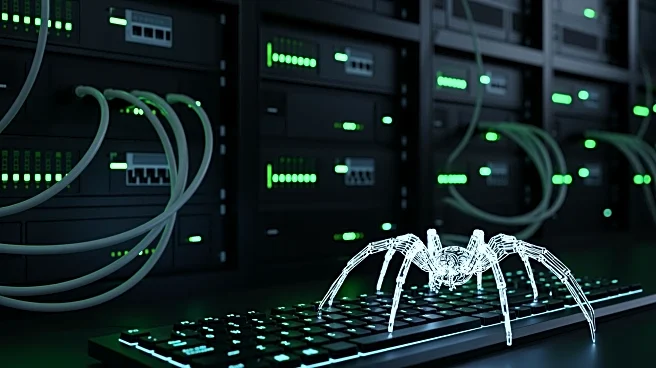What's Happening?
Howmet Aerospace Inc. has initiated legal action against Stanley Black & Decker Inc. subsidiaries, alleging patent infringement related to a specialized fastener used in solar panel installations. The
lawsuit, filed in the US District Court for the District of Delaware, claims that Stanley Engineered Fastening LLC and its Avdel affiliates have copied Howmet's patented design and installation method with their Avbolt ECO product line. The patent in question, US Patent No. 11,885,358, covers a one-sided 'blind' fastener that secures materials without breaking off its internal pin, a feature shared by Howmet's BOMTail fastener. Howmet asserts that Stanley's product line infringes on this patent, potentially impacting the company's market share and intellectual property rights.
Why It's Important?
This lawsuit underscores the competitive nature of the renewable energy sector, particularly in the solar industry where innovation in installation technology can significantly affect market dynamics. Howmet's legal action highlights the importance of protecting intellectual property to maintain competitive advantage and ensure fair market practices. If Howmet's claims are upheld, it could lead to financial repercussions for Stanley Black & Decker and influence the design and manufacturing strategies of other companies in the sector. The case also emphasizes the role of patents in fostering innovation and safeguarding proprietary technologies, which are crucial for advancing renewable energy solutions.
What's Next?
The legal proceedings will likely involve detailed examination of the patent claims and the design specifics of the fasteners in question. Both companies may engage in negotiations or settlements to resolve the dispute, potentially impacting their business operations and partnerships. The outcome of this case could set a precedent for future patent disputes in the renewable energy industry, influencing how companies approach innovation and intellectual property protection. Stakeholders in the solar industry will be closely monitoring the case for its implications on product development and competitive strategies.
Beyond the Headlines
Beyond the immediate legal and business implications, this case highlights broader issues related to innovation in the renewable energy sector. The protection of intellectual property is vital for encouraging technological advancements that can drive sustainability and efficiency in energy solutions. The lawsuit may also prompt discussions on the balance between competition and collaboration in the industry, as companies navigate the complexities of patent law and market demands.









